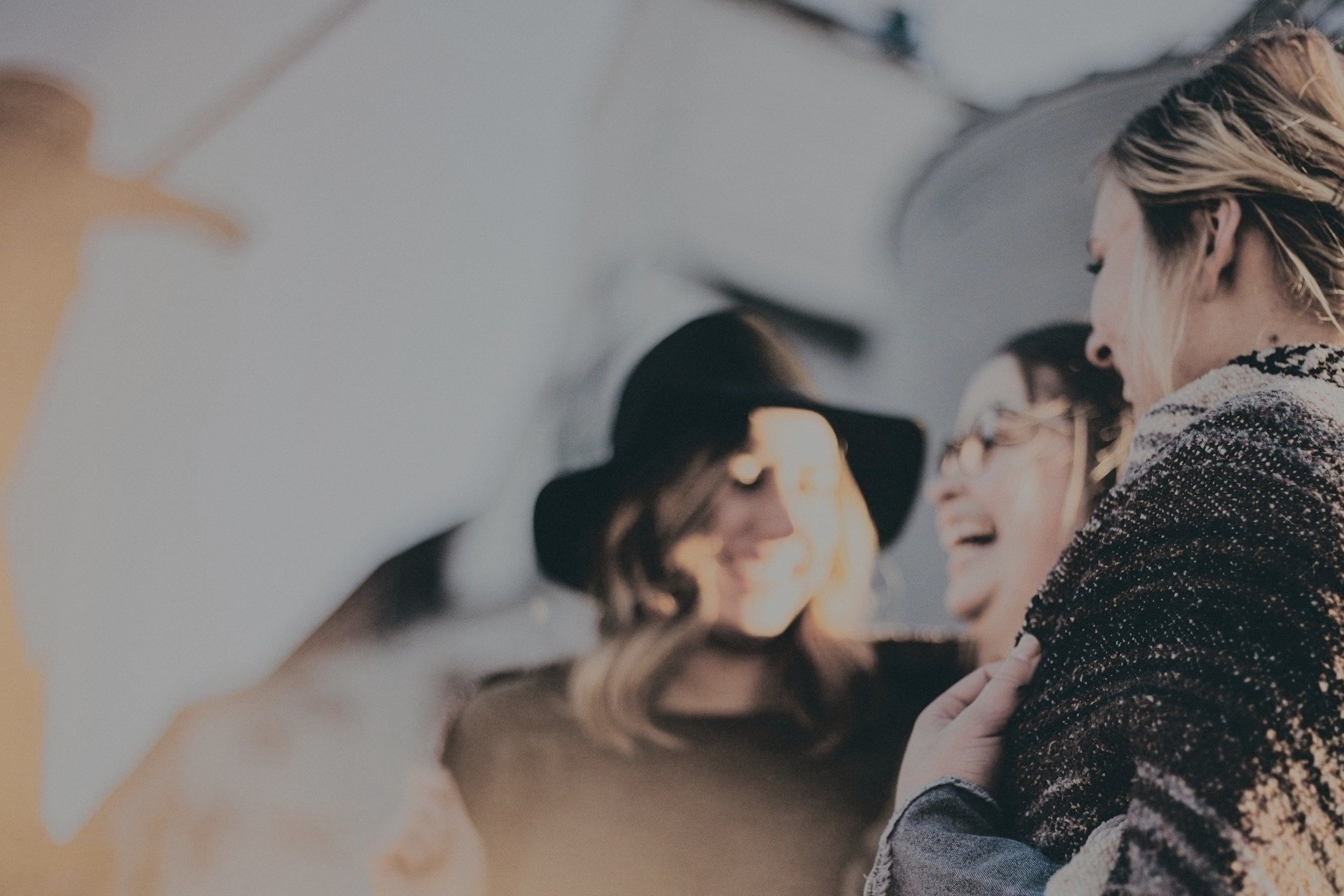MENTAL HEALTH | COMMUNITY | HEALING | ANXIETY | GRIEF | DEPRESSION Our Journal
Real people.
Real stories.
The latest

Alex Bradley: Fallen Faith, a Final Goodbye, and the Walk to Remember
After losing his faith, his marriage, and his best friend to suicide, Alex Bradley was left with nothing but breath—and a choice. Now, he’s walking 2,560 miles to honor his friend and remind us that healing begins with a single, imperfect step.

Olivia MacDonnell: What Surviving a Cult Taught Me About Healing
Olivia MacDonell escaped an international cult, battled addiction and trauma, and discovered healing through MDMA therapy, somatic work, and spiritual integration. Now founder of Tap Integration, she guides others towards post-traumatic growth.

Freddie Kimmel: Curtain Calls, Cancer, and the Comeback of a Lifetime
After surviving metastatic cancer, Lyme disease, and toxic mold, former Broadway performer Freddie Kimmel transformed his pain into purpose. Now a wellness concierge and host of The Beautifully Broken Podcast, Freddie blends functional medicine, emotional healing, and cutting-edge wellness tech to help others reclaim their health and hope.

Michael Lombard: From the Freight Yard to the Finish Line
After hitting multiple rock bottoms, Marine Corps veteran and former truck driver Michael Lombard reclaimed his health, purpose, and identity, and is now on a mission to transform the trucking industry's relationship with fitness and health, one mile at a time.

Laura Cannon: Creating Space for Grief and Connection Through Just Okay
After losing her husband to cancer as a young newlywed, Laura Cannon turned her grief into purpose by launching Just Okay — a community-driven space that reimagines how we connect through loss. A former oncology pharmacist and current educator in Austin, Laura combines personal experience with professional insight to create resources, share stories, and spotlight small businesses in the grief space. From redefining traditional sympathy gifts to offering peer-led support channels, Just Okay helps people process all forms of grief — not just death, but transitions like divorce, job loss, or identity shifts — with honesty, heart, and connection.

Here’s How to Exercise to Combat Depression and Anxiety, According to a Therapist-Turned-Trainer
It’s no secret that exercise is a cornerstone of physical health. The immediate rush of endorphins and long-term physical benefits are well-documented. But did you know its impact on mental health can be just as transformative? By taking a holistic approach to movement, exercise can foster physical strength, psychological resilience, and emotional balance.
To understand how fitness can support mental health, we spoke with Pablo Andres Escobar, a personal trainer in San Francisco with a master’s degree in psychology. A former therapist, Pablo transitioned from mental health counseling to fitness training after recognizing how powerful physical activity could be for mental well-being—not just for himself, but for his clients too.

How Wellness Is Evolving in 2025: Sleep, Psychedelics, and More
As we step into 2025, the wellness landscape is evolving—shifting from fleeting resolutions to sustainable, mindful habits. More than ever, we're seeking balance, intentionality, and a deeper connection between mind and body, and with each other. These top wellness trends for the year ahead reflect a collective commitment to holistic health and well-being on a deeper level than ever before.

Visualization for Healing: Using the Mind to Build Resiliance
Picture this: You’re seated in a cozy, quiet room—a space that feels like the sitting room or library from a Clue board game. Leather-bound books line rich mahogany shelves. You sink into a soft antique leather couch. Now, imagine a warm, golden wave of light flowing through your body—a soft tide gently washing away tension from your head down to your toes. As this light moves through you, feel every muscle loosen and lengthen, releasing all strain.
This isn’t just a comforting daydream. You’re tapping into one of the most powerful, yet underrated, tools for healing: visualization. Top performers like Sara Blakely, Michael Phelps, and Simone Biles credit visualization as a cornerstone of their success.

Why We Heal Better Together: The Physiological Benefits of Community
We hear it all the time: "Connection is medicine." But this isn’t just a feel-good mantra—it’s a biological truth. Humans are wired for connection. Relationships don’t just enrich our lives; they regulate our nervous systems and strengthen our bodies. Yet, despite being more digitally connected than ever, people are becoming lonelier.
A 2021 Harvard study found that 36% of all Americans—including 61% of young adults—report feeling "serious loneliness." In-person social interactions have declined significantly, with more people working remotely and socializing less frequently in physical spaces. Let's dive into why healing together isn’t just helpful—it’s essential.

Hardwired for Gratitude: How to Rewire Your Brain and Boost Your Body
Gratitude. Few wellness buzzwords rival its ubiquity—perhaps only "mindfulness" has earned as much attention. Yet, the more consistently I practice gratitude, the clearer its profound impact becomes.
Skepticism toward gratitude often stems from its simplicity. Like advice to "drink more water" or "get more sleep," the simplest guidance can be the most impactful—and the hardest to follow. But understanding gratitude's deep neurological roots can shift it from fluffy advice to a fundamental wellness practice.





